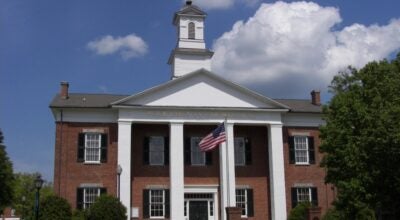Two motions filed in Abril case
Published 4:18 pm Monday, August 25, 2008
Motions by both the prosecution and defense were briefly in the news prior to the start of the trial in Polk County earlier this month, when an attorney for the Hendersonville Times-News went to court to argue that any discussion of these motions should take place in open court. Both motions subsequently were sealed.
In one motion, defense attorney Stephen Lindsay asked that the court not be allowed to offer evidence of &dquo;other crimes, wrongs or acts&dquo; under Rule 404b of the Rules of Evidence in the N.C. General Statutes.
&dquo;That is a rule that provides that someone cannot come into court and argue, essentially, &dquo;The defendant probably did it. Look at all the other bad stuff he&squo;s done in the past,&dquo; said Amanda Martin, general counsel to the N.C. Press Association.
Rule 404(b) reads: &dquo;Evidence of other crimes, wrongs, or acts is not admissible to prove the character of a person in order to show that he acted in conformity therewith. It may, however, be admissible for other purposes, such as proof of motive, opportunity, intent, preparation, plan, knowledge, identity, or absence of mistake, entrapment or accident.&dquo;
In his motion to bar this evidence, Lindsay said, &dquo;the defense is very simple ‐ the defendent did not do thiese things. Therefor, the only possible purpose that the State would seek to introduce this information is to establish that he acted in comformity with the uncharged conduct… None of these (allegations) is supported by a witness other than the accuser, there is no physical evidence supporting any of these allegations and substantial evidence exists as to the credibility of these persons.&dquo;
Lindsay further argues that any hearing on the 404(b) evidence be in the judge&squo;s chambers. &dquo;Holding a hearing in open court regarding what is an evidentiary matter would result in said information being highly publicized. This case needs to be tried in the courtroom and not in the media.&dquo;
In a motion filed by the state prosecutors, the judge is asked to bar the defense from introducing &dquo;evidence of sexual behavior&dquo; by the alleged victims.
Under Rule 412, the law says that the sexual past of a victim cannot be introduced, or even mentioned or alluded to, in a criminal trial unless the court first conducts a closed hearing review of the offered evidence and determines it is relevant to the case.
However, Lindsay wrote in his motion, that he believed he had discovered evidence &dquo;relating to one of the alleged victims that he believes is admissable.&dquo;
The law says, &dquo;the sexual behavior of the complainant is irrelevant to any issue in the prosecution unless such behavior,
&dquo;1) was between the complainant and the defendent; or
&dquo;2) Is evidence of specific instances of sexual behavior… showing that the act or acts charged were not committed by the defendent; or
&dquo;3) Is evidence of a pattern of sexual behavior so distinctive and so closely resembling the defendent&squo;s version of the alleged encounter with the complainant as to tend to prove that such complainant consented to the act or acts charged or behaved in such manner as to lead the defendant reasonable to believe that the complainant consented; or
&dquo;4) Is evidence of sexual behavior offered as the basis of expert psychological or psychiatric opinion that the complainant fantasized or invented the act or acts charged.&dquo;





